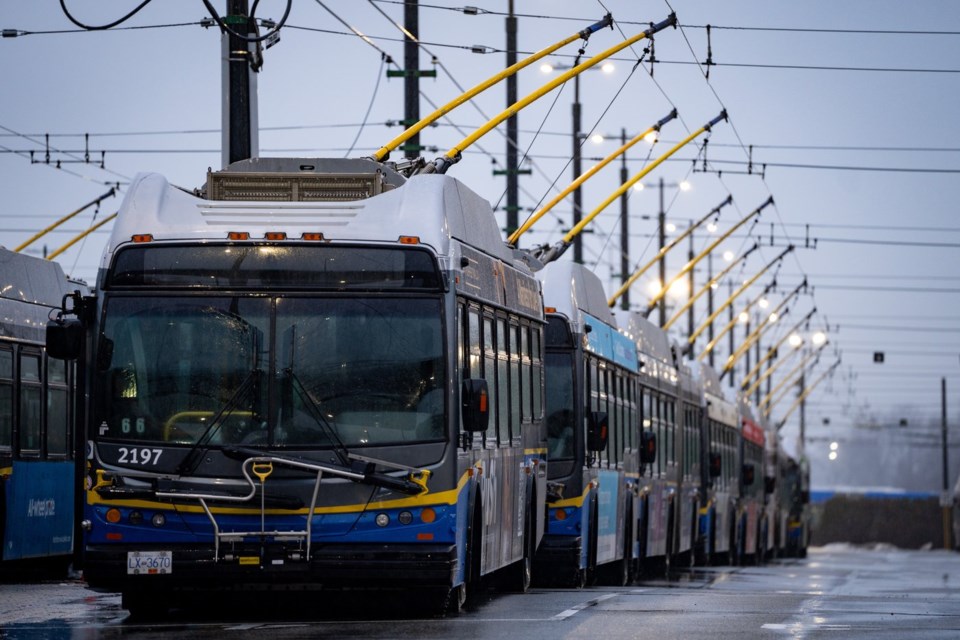VANCOUVER — TransLink is proposing a plan to improve its services, ease overcrowding and finish projects, but it will involve a fare hike and a tax increase for Metro Â鶹´«Ã½Ó³»residents.
The B.C. government announced Thursday that it would provide $312 million in operating funding to the Metro Â鶹´«Ã½Ó³»transit operator over the next three years, if the rest of its investment plan is approved.
The plan would allow for several improvements, including more service on up to 50 bus routes, extending the North Shore's rapid bus and adding West Coast Express train cars.
But it would also mean a five-per-cent fare increase in July 2026, followed by annual two per cent increases, and there would be another $1.50 added to the current fee to go the airport, along with a 0.5-per-cent property tax increase, equal to about $20 for a median household.
A public consultation process is being held on the plan with comments accepted until April 24.
A vote by both the Mayors' Council and the TransLink Board is expected on April 30.
The executive director of a non-profit group representing transit riders in Metro Â鶹´«Ã½Ó³»says while they support the plan to invest and reduce congestion, the biggest beneficiary from the proposal may be drivers in the region.
"Transit riders will pay an extra $64 to $120 per year, while property owners will pay an average of $20 more," says Denis Agar in a statement, adding that motorists, meanwhile, are receiving rebates from the Insurance Corporation of B.C. and fuel "has become far cheaper with the removal of the carbon tax."
"It’s time for all Metro Vancouverites to pay their fair share, so that we can have a functional, reliable transportation system."
TransLink provides 5.5 million service hours every year, operating commuter trains and the SeaBus, as well as trolley and regular buses, but has said it faced a shortfall of $600 million per year.
Transportation Minister Mike Farnworth says they know that TransLink is facing a significant deficit as costs and demand for services increase, and the provincial funding will allow for both stable service and for expansion.
The B.C. money is in addition to $1.5 billion over 10 years that the federal government announced for the network in March.
This report by The Canadian Press was first published April 10, 2025.
The Canadian Press



